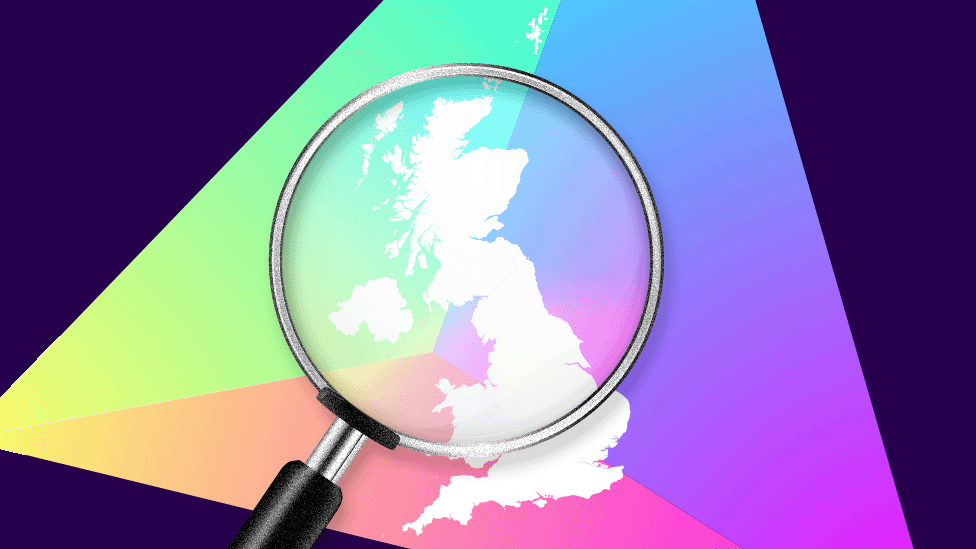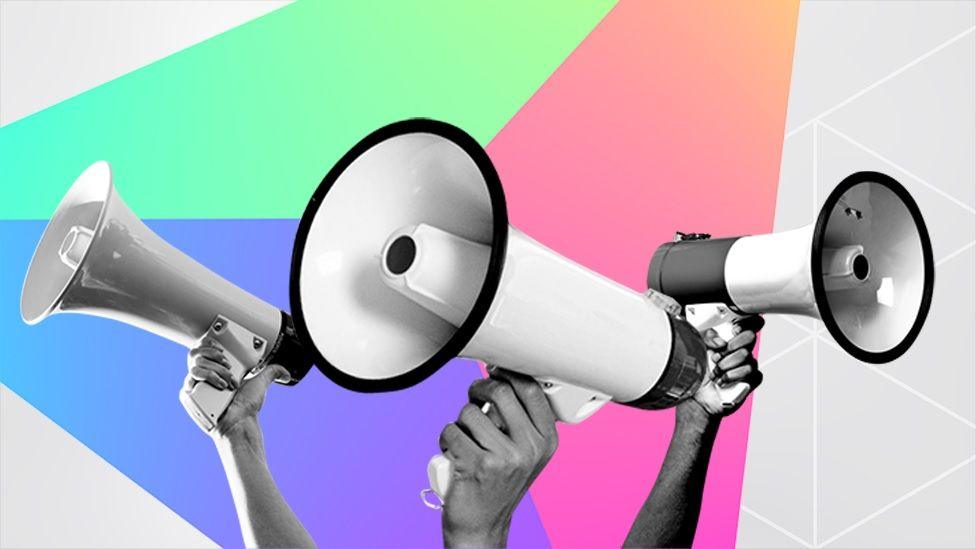'It's a vicious cycle why many young people don't vote'
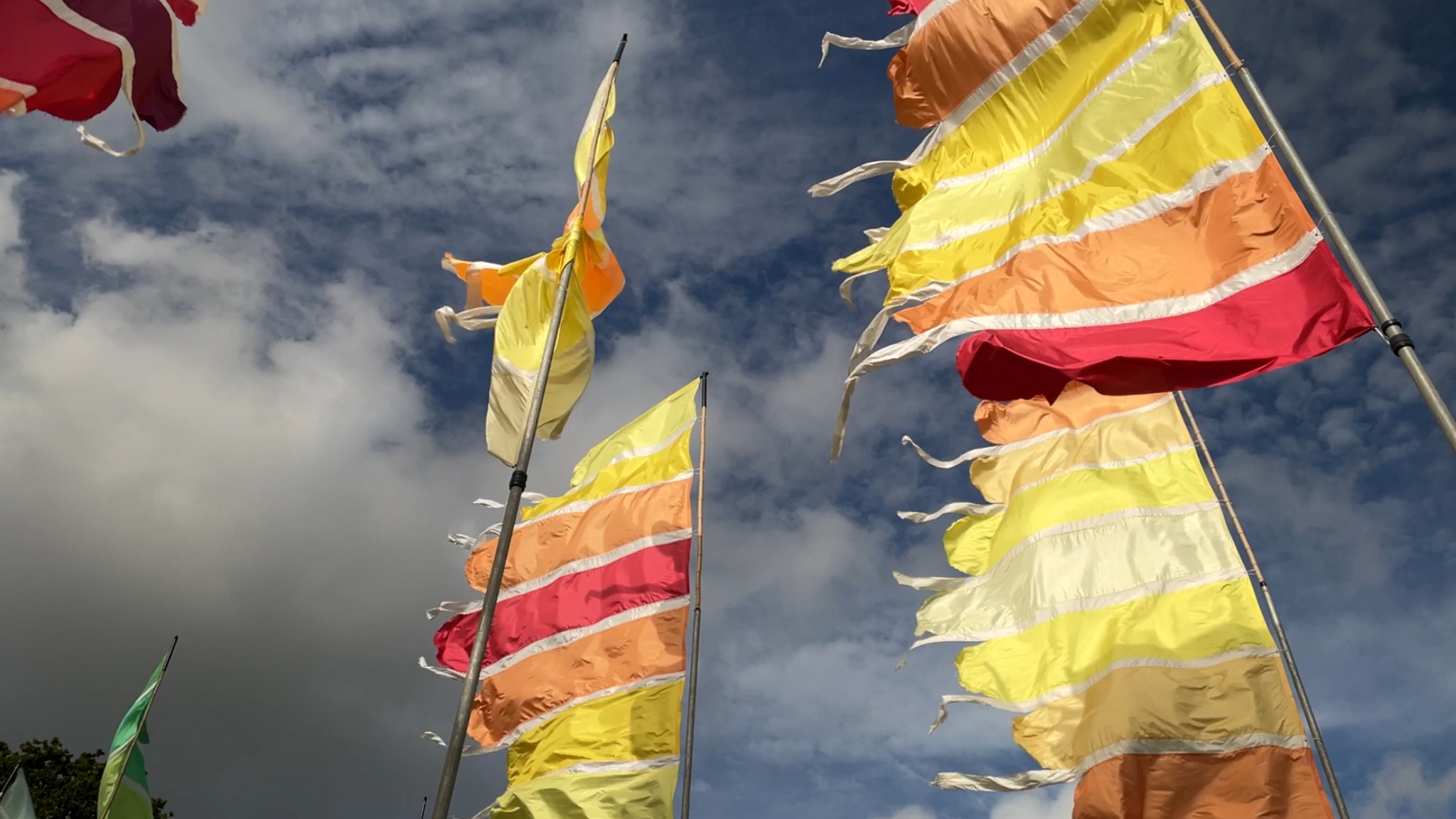
Parliamentary research from 2021 found people under 25 were the most politically active age group
- Published
Fewer than half of 18 to 24-year-olds exercised their right to vote in the last election, compared to three quarters of people aged 65 and above. Across three locations, I've spoken to dozens of first-time voters to get a feel for what they are thinking about in the lead up to the election.
Whatever your vibe, you'll probably find it at the Isle of Wight Festival - from Britpop to hip-hop, rap, reggae and rock.
Politics may seem a world away, but many first-time festival-goers here are also first-time voters.
And while it might be easy to find your musical tribe, it can be much more tricky to work out which political grouping to align yourself with.
Which may explain why the number of young people registering to vote has continued to fall.
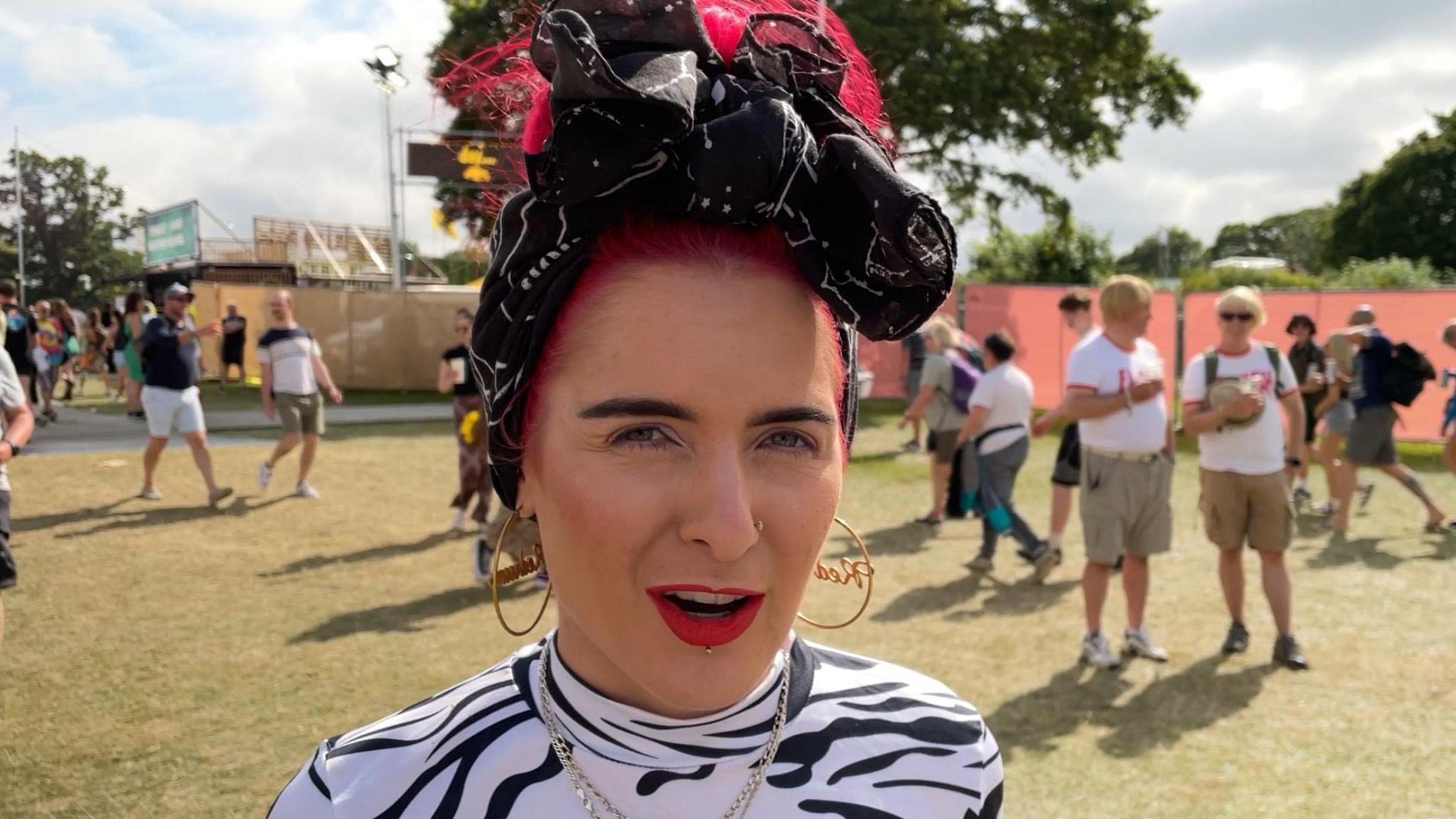
Hatice Tuzun said she was still unsure whether she'll vote or not
Hatice Tuzun, an artist who creates political music and performed at the festival on Sunday, said she feels it's important to vote, but isn't happy with choices on offer.
She said she "wishes there was a younger generation who could speak on our behalf".
"There's not much we can do other than follow our truths and speak up about our beliefs," she said.
"I'm going to continue with my political music and hopefully find an audience that can listen to me and follow their truth."
When asked if she would be voting she told me she wasn't sure.
Another festivalgoer, Frank, was surprised when asked about voting and said that he doesn't even want to know what parties stand for.
"There's nothing you can say to change it. My voice ain't gonna change it. I don't see the point in going on with it," he said.
Polling by Ipsos, whose records began more than 30 years ago,, external shows people aged 18 to 24 are both the least likely age group to vote at every election, as well as the least likely to be registered.
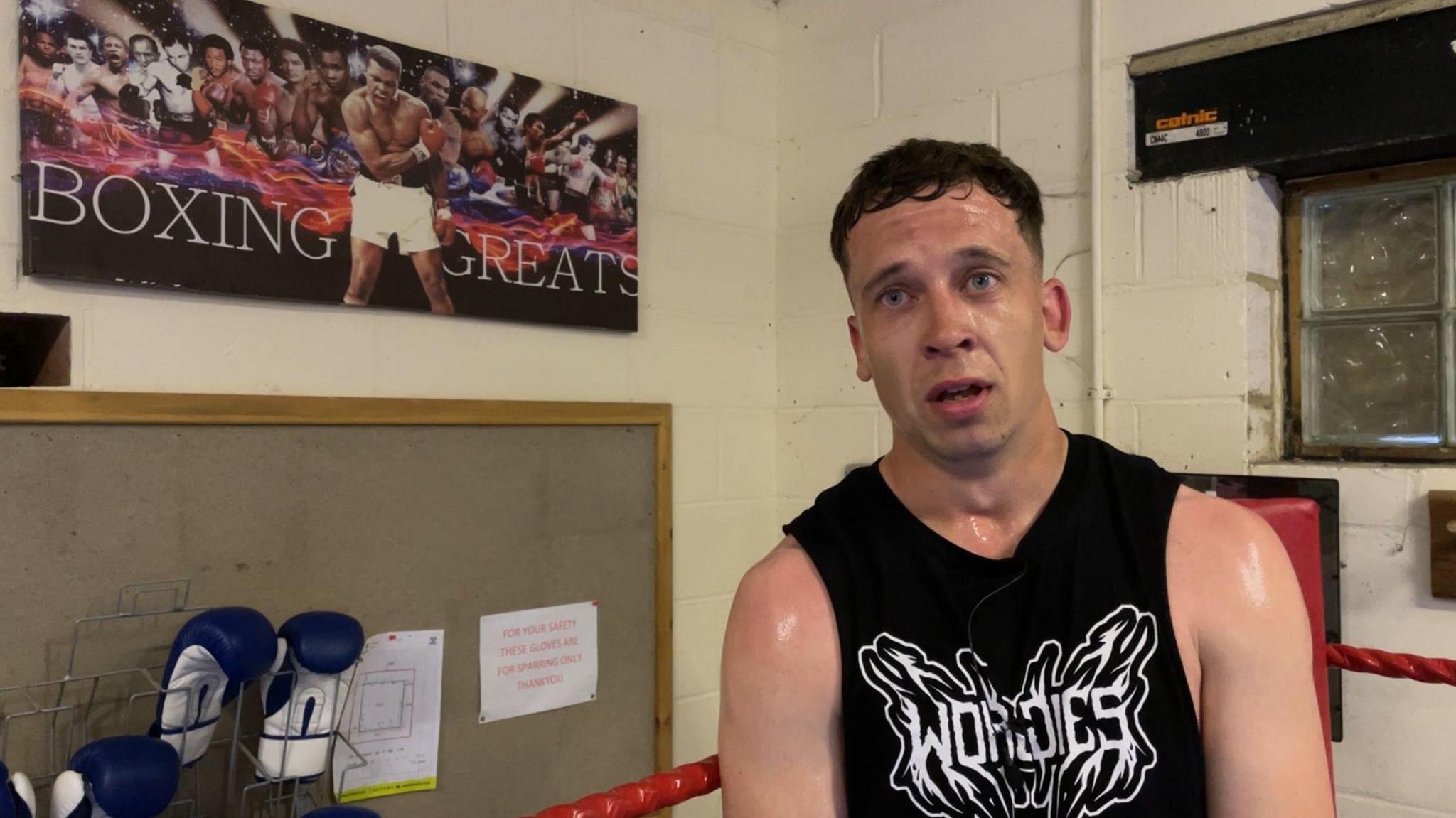
Tommy Hodson said he won't be voting in the general election
At Poole Amateur Boxing Club, aspiring featherweight Tommy Hodson said that, although he's 31, he hasn't voted once since he turned 18.
"I'm not politically engaged at all. I don't watch the news and I don't pay attention to politics," he said.
"I just don't understand it and don't really care to understand it, which I know probably isn't the best way to look at it."
He said one reason for his lack of interest could be because politicians aren't from his "sort of world" and that they "don't understand how the working class live".
Fellow boxer and eligible voter Guy Newcomb recently turned 18, but also said he wouldn't be voting in this election.
"I don't really see it affecting my life too much," he said. "There's a lot of articles to read up on but I haven't looked into it and I don't really know much."
Despite data from the Electoral Commission, external showing comparatively low numbers of young people voting, parliamentary research from 2021 found people under 25 were the most politically active age group.
They are more likely to sign petitions, join campaigns or share political content online. In other words, they have the potential to pack a political punch.
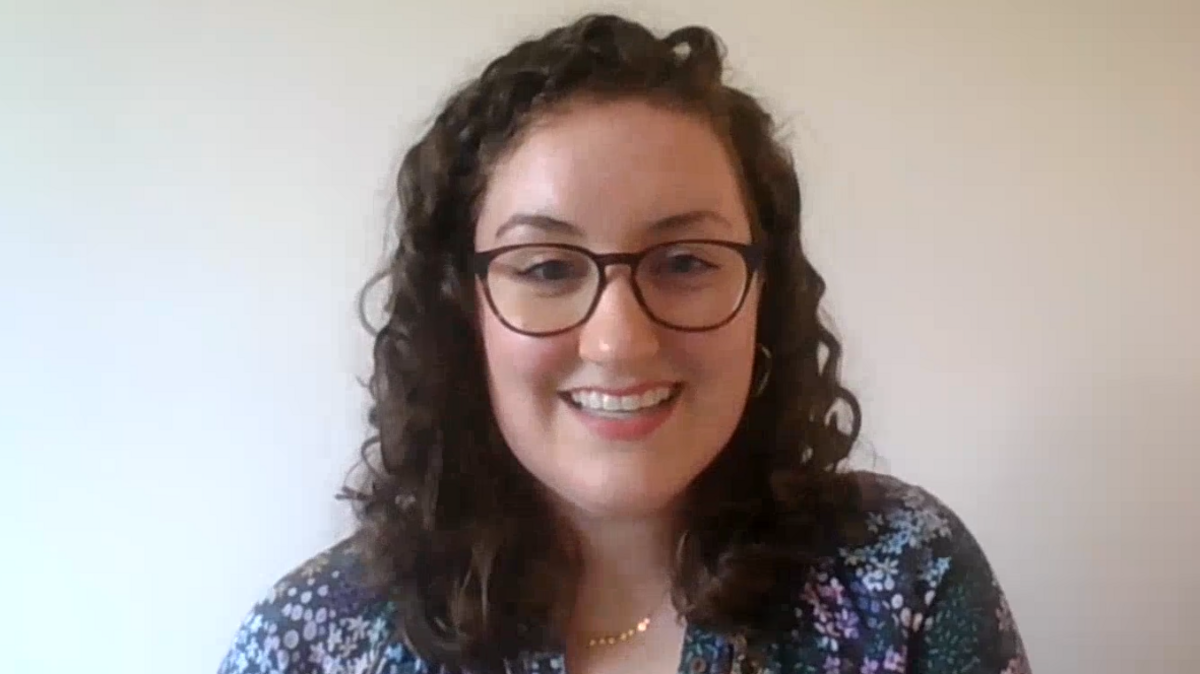
Meg Briody believes political opinion has no set age
Our Generation Our Vote, which is a coalition of youth charities and organisations including Save the Children, Girlguiding and Young Citizens, works with schools to introduce children who are under 18 to politics.
Meg Briody, head of child and youth participation, said a lack of engagement with younger voters by MPs could be part of the problem.
"There's this vicious cycle where MPs might not think young people will vote, therefore they might not be engaging them," she said. "And therefore young people might be less likely to vote."
She said young people are politically engaged and care about the same issues as politicians.
"They [politicians] just need to show up in young people's spaces and demonstrate that," she said.
Ms Briody also said she would like to hear from children of all ages.
"I don't think there is a set age at which your political opinions become relevant," she added.
In Scotland, you can vote in Scottish parliamentary and local elections at 16. Some parties have even included this in their manifesto.
During a hustings event at City College in Southampton, students get to question politicians on issues that matter to them. It's hoped events like these will encourage first-time voters to engage with the election.
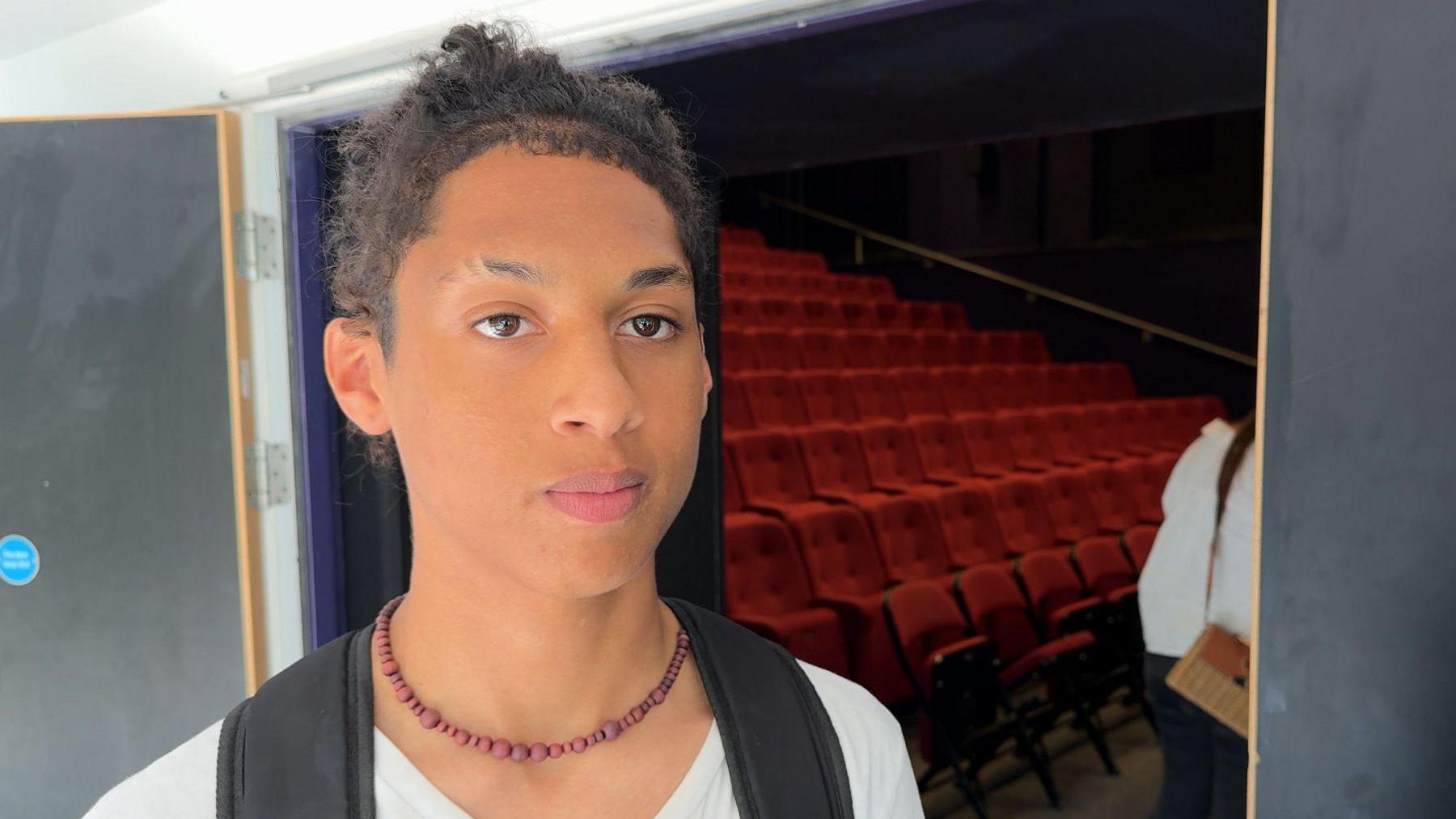
Levi can't vote but said he was very politically engaged
One student, Levi, stood up to challenge politicians on the panel. He was particularly vocal in showing his disagreement towards some policies on immigration.
Speaking after the event he said he has friends and family who migrated to the UK.
He said: "My cousin is an immigrant and the only reason he's ever been given a job opportunity is because he's managed to work for my father who is also an immigrant that's taken 25 years to build up a company and make a name for himself finally."
With a year still left before he can vote, he said he feels frustrated and that "he wished he could make his voice more heard".
"We shouldn't be looking towards the people of yesterday to be moving our future forward. We need to be looking at people that will be in the future," he added.

Related topics
- Published3 July 2024
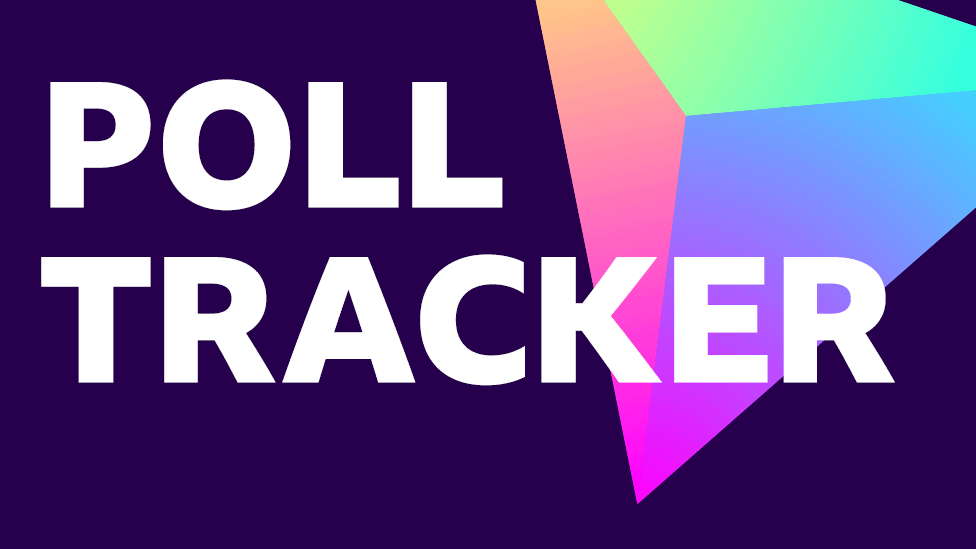
- Published3 July 2024
